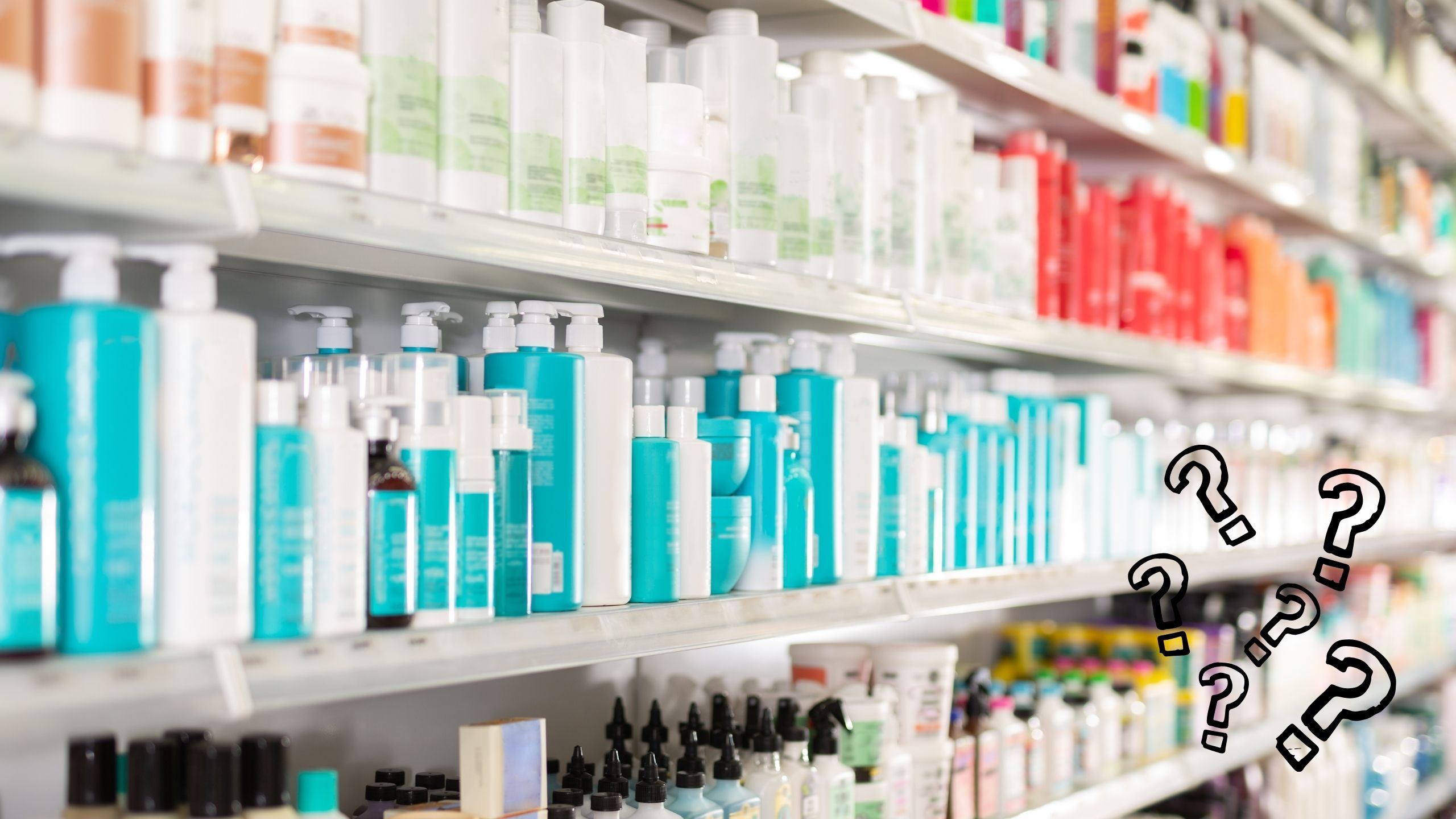Simple Daily Habits for Better Vaginal Health

In the routine of daily life, women's health often includes aspects that deserve regular attention, like maintaining vaginal well-being. This area of the body has its own natural balance, influenced by habits in hygiene, diet, clothing, and more. While issues can arise from time to time, many women find that small, consistent changes help keep things comfortable and healthy. Drawing from medical insights, this article explores practical steps that fit into everyday schedules, without overcomplicating things.
Starting with Basic Hygiene
One of the foundational steps in supporting vaginal health is proper cleaning. The vagina is self-cleaning, meaning it produces fluids that help flush out bacteria and maintain pH levels. However, the external area, known as the vulva, benefits from gentle care.
Experts recommend washing the vulva daily with warm water. If soap is used, opt for mild, unscented varieties to avoid irritation. Harsh soaps or those with fragrances can disrupt the natural flora, leading to discomfort or infections. It's important not to wash inside the vagina itself, as this can wash away beneficial bacteria and increase the risk of imbalances.
After washing, patting the area dry with a clean towel helps prevent moisture buildup, which can encourage yeast growth. For those who experience occasional irritation, applying a plain barrier cream, like petroleum jelly, can provide a protective layer without introducing chemicals. This simple routine—done during a shower or bath—takes just a minute but can make a noticeable difference in comfort.
Avoiding douching is another key habit. Many women might think it freshens things up, but it actually does the opposite by disturbing the internal environment. Instead, letting the body handle its own cleansing process works best for most.
Nourishing from the Inside Out
What women eat and drink plays a role in vaginal health, as it affects overall bodily functions, including hydration and bacterial balance. Staying well-hydrated is straightforward: aiming for plenty of water throughout the day helps keep mucous membranes moist and supports the body's natural defenses.
A balanced diet rich in fruits, vegetables, whole grains, and lean proteins contributes to a healthy microbiome. Foods like yogurt, kefir, or other probiotic-rich options can introduce beneficial bacteria, which may help prevent common issues like yeast infections. While supplements are available, getting these through food is often sufficient and more enjoyable—think adding a serving of Greek yogurt to breakfast or snacking on fermented vegetables.
Multivitamins can fill in gaps if a diet lacks variety, but they're not a substitute for real food. Cutting back on excessive sugar is also wise, as high sugar intake can feed yeast and lead to overgrowth. This doesn't mean avoiding sweets entirely, but moderation keeps things in check.
Regular meals and snacks that include fiber from sources like oats or berries support digestion, which indirectly benefits vaginal health by reducing the chance of constipation-related strain.
Choosing Comfortable Clothing
Clothing choices might not seem directly linked to vaginal health, but they can influence airflow and moisture levels. Opting for breathable fabrics, such as cotton underwear, allows air circulation and helps wick away sweat. Synthetic materials, while common in activewear, can trap heat and moisture if worn all day, potentially leading to irritation.
It's helpful to avoid overly tight pants or leggings for extended periods. While they're fine for workouts or short outings, switching to looser options at home promotes better ventilation. After exercising, changing out of damp clothes promptly prevents bacterial buildup.
Embracing Clothing-Free Time
Taking time to go without clothing can further support vaginal health by maximizing airflow and reducing moisture, which helps control odor and prevents bacterial or yeast growth. The vagina and vulva weren't designed to be covered constantly, so allowing them to "breathe" can be beneficial. If privacy and comfort allow, spending time nude at home—even for short periods—can promote a healthier environment for these sensitive areas.
For women who find nudity at home impractical, sleeping without underwear in the privacy of their bedroom is a simple alternative. This gives the vulva a break from fabric overnight, reducing trapped moisture. Another option is going underwear-free when wearing long dresses or skirts during the day. This allows air to circulate while still maintaining modesty, especially in warmer weather or relaxed settings. These choices can easily fit into daily routines and contribute to ongoing comfort.
Habits During Intimacy
Sexual activity is a normal part of life for many women, and certain practices during and after can support vaginal health. Using lubrication when needed reduces friction and prevents small tears that could lead to infections. Water-based or natural lubricants are generally gentle and less likely to cause reactions compared to those with added scents or warming agents.
Peeing after intercourse is a quick habit that helps flush out any bacteria that might have entered the urethra, lowering the risk of urinary tract infections. This applies whether with a partner or solo.
Practicing safe sex with condoms or other barriers protects against sexually transmitted infections, which can affect vaginal balance. If allergies to latex or spermicides are an issue, non-latex options or alternative methods are available. Open communication with partners about cleanliness—such as washing hands or using clean toys—adds another layer of prevention.
For women experiencing dryness, especially during menopause or breastfeeding, over-the-counter moisturizers applied a few times a week can restore comfort without hormones. These are different from lubricants, as they provide longer-lasting hydration.
Incorporating Movement and Check-Ups
Physical activity benefits the whole body, including the pelvic region. Regular exercise, like walking or yoga, improves circulation and strengthens muscles that support the bladder and vagina. Pelvic floor exercises, often called Kegels, are particularly useful. These involve contracting and relaxing the muscles used to stop urine flow, done in sets of 10-15 repetitions a few times daily. They can be discreetly practiced while sitting at a desk or watching TV.
Annual gynecological exams are a proactive habit, allowing for early detection of any concerns. These visits provide an opportunity to discuss habits and get personalized advice. Even if everything feels fine, sticking to this schedule maintains baseline health.
Listening to the body is equally important. If unusual odors, discharge, or pain occur, seeing a doctor sooner rather than later addresses potential issues before they worsen. Common causes include infections or allergies, which are treatable.
Avoiding Common Irritants
Many everyday products can unknowingly affect vaginal health. Scented pads, tampons, or toilet paper often contain chemicals that irritate sensitive skin. Switching to unscented versions reduces this risk.
Bubble baths or heavily fragranced body washes should be used sparingly, as they can alter pH levels. Plain water or mild alternatives are safer for regular use.
Smoking is another factor to consider, as it can reduce blood flow and affect tissue health. Quitting or cutting back improves overall circulation, including to the vaginal area.
Putting It All Together
Integrating these habits doesn't require a major overhaul. Start with one or two, like improving hydration or choosing cotton underwear, and build from there. Over time, they become second nature, contributing to a sense of well-being.
Every woman's body is different, so what works for one might need tweaking for another. If symptoms persist despite these changes, professional guidance ensures the right approach. By focusing on these routines, many women maintain comfort and confidence in their daily lives.
Summary of Daily Habits for Vaginal Health
| Habit | Description | Benefit |
|---|---|---|
| Basic Hygiene | Wash vulva with warm water and mild soap; avoid douching. | Maintains natural pH and prevents infections. |
| Nourishing Diet | Stay hydrated; eat probiotic-rich foods and fiber. | Supports microbiome and reduces yeast overgrowth. |
| Comfortable Clothing | Choose cotton underwear; avoid tight clothes. | Promotes airflow and reduces moisture buildup. |
| Clothing-Free Time | Spend time nude at home or sleep without underwear. | Controls odor and prevents bacterial growth. |
| Intimacy Practices | Use lubrication; urinate after sex; practice safe sex. | Reduces irritation and infection risk. |
| Movement and Check-Ups | Do pelvic exercises; attend annual exams. | Strengthens muscles and detects issues early. |
| Avoid Irritants | Use unscented products; quit smoking. | Prevents skin irritation and improves circulation. |
Frequently Asked Questions
How often should I wash the vulva?
Daily with warm water and mild, unscented soap is sufficient. Avoid over-washing to prevent disrupting natural bacteria.
Is douching necessary for vaginal health?
No, douching can harm the natural balance and increase infection risk. The vagina is self-cleaning.
What foods support vaginal health?
Probiotic-rich foods like yogurt, along with fruits, vegetables, and fiber, help maintain a healthy microbiome.
Can clothing affect vaginal health?
Yes, breathable cotton underwear and loose clothing promote airflow, reducing moisture and irritation.
When should I see a doctor?
If you notice unusual odors, discharge, pain, or changes, consult a doctor promptly for evaluation.
Disclaimer: The articles and information provided by the Vagina Institute are for informational and educational purposes only. This content is not intended to be a substitute for professional medical advice, diagnosis, or treatment. Always seek the advice of your physician or another qualified health provider with any questions you may have regarding a medical condition.


 English
English  Deutsch
Deutsch  Español
Español  Français
Français 




